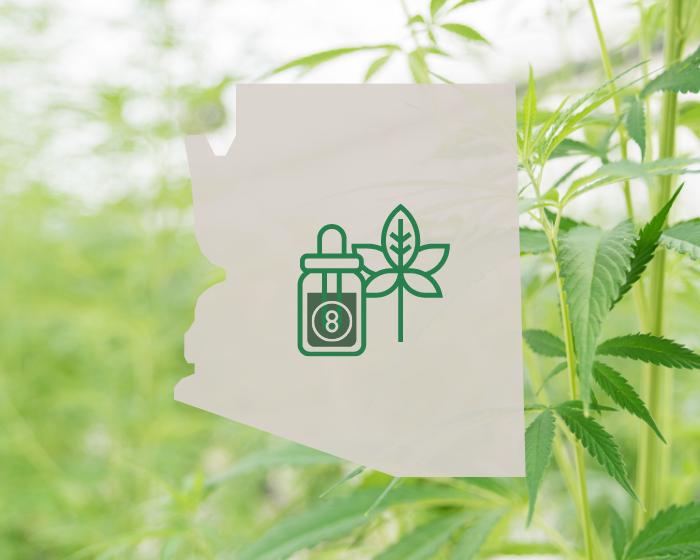A bill before Arizona state lawmakers would ban the production and sale of popular gummies, extracts, and vapes containing delta-8 or any other hemp-derived THC, reports the Phoenix New Times.
The bill, Senate Bill 1715, revises existing hemp laws to exclude “hemp-derived manufactured impairing cannabinoids” from the definition of hemp. It passed the state Senate in March and was transmitted to the House. There’s been no action since.
The bill revises existing hemp laws to exclude “hemp-derived manufactured impairing cannabinoids” from the definition of hemp.
Adult recreational use has been legal in Arizona since November 2020. The bill is backed by the Arizona Dispensaries Association, an industry association for licensed cannabis businesses.
Sam Richard, executive director of the Arizona Dispensaries Association, told the Phoenix New Times the motive behind the bill is consumer safety.
“What we’re doing is allowing psychoactive products to be in the hands of children if we allow this synthetic process to move forward,” he said, noting that hemp products are unregulated and can be sold without the third-party testing and other requirements that regulated cannabis is subject to.
That’s because when the 2018 federal Farm Bill legalized hemp, it explicitly limited THC concentration to 0.3 percent delta-9 — naming the most well-known and naturally abundant form of THC in cannabis plants. Delta-8 and other hemp-derived THC isomers are extracted from hemp as CBD, then chemically converted to THC. In this regulatory gray area, there’s little oversight and product quality can vary widely.
Some see better regulation of hemp-derived THC as the solution, rather than a complete ban.
Jonathan Udell, the communications director for Arizona NORML, told the Phoenix New Times that allowing delta-8 could create healthy competition in the state.
“It is important to have these synthetic products on the market, and that’s in part due to just how anti-competitive our marketplace is here in Arizona,” Udell said. He compared Arizona’s 123 dispensaries serving a population of 7.3 million to Colorado’s 655 dispensaries serving 5.8 million residents.
But Udell agrees with the idea that transparency and regulation are important.
“We would like to see a disclosure requirement for products containing hemp-derived cannabinoids and dispensaries so consumers know what they’re getting,” Udell said. “And also stopping sales of untested products to the unregulated market, either through just requiring everything to be sold through dispensaries or requiring a similar testing program for other locations.”
Hemp-Derived THC is Under Review Across America
Many states have passed laws regulating delta-8 THC in the past year, with at least 17 states banning it altogether. Lawmakers in other states, including Kentucky, Tennessee and Minnesota, have considered bans this legislative session. And Michigan, the first state to say it would regulate delta-8 rather than banning it, seems to be shifting its stance.
A bill introduced to Congress in February, the Hemp Advancement Act, seeks to make hemp-derived THC illegal nationwide. The measure revises the 2018 Farm Bill language that set concentration limits on delta-9 THC specifically, changing the law to limit any and all THC isomers to a trace amount of 0.3 percent.
Some in the hemp industry have argued that regulations will address safety concerns more effectively than bans: limiting sales to ages 21-plus, mandating childproof packaging, and creating standards for testing and labeling.


















